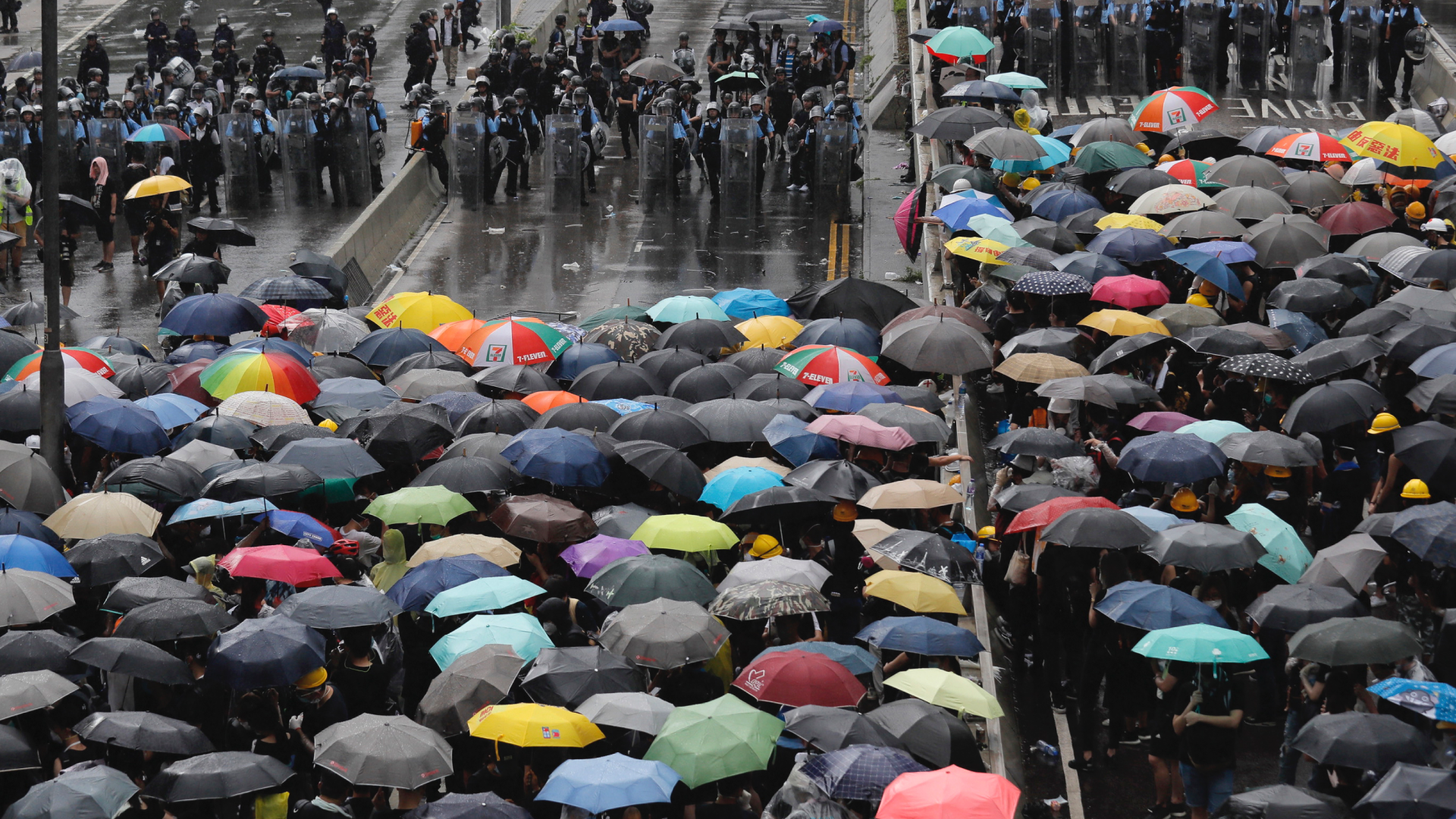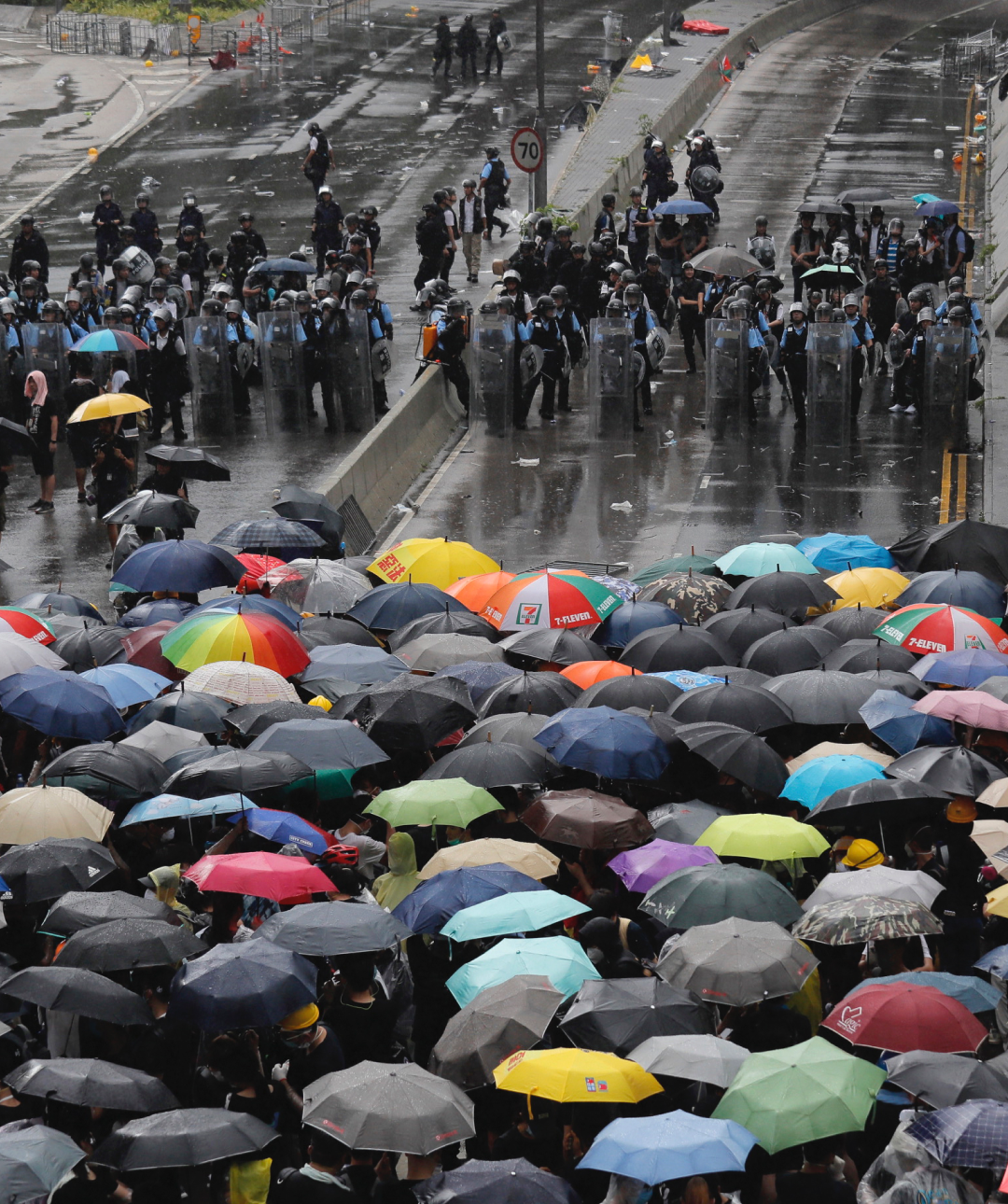

The very last thing any person with integrity wants, or should want, is to be praised by the likes of Hong Kong Chief Executive John Lee, the main man responsible for aiding and abetting the Chinese Communist Party in eroding democracy and freedom in Hong Kong.
And yet, somehow, that’s exactly the position former New Zealand Judge William Young finds himself in. In May, when it was announced that Young had been appointed to the Hong Kong Court of Final Appeal, Lee described Young’s new role as a “manifestation of the independence of the judiciary in the Hong Kong Special Administrative Region as protected by the Basic Law.”
If only Lee cared about judicial independence.
In 2023, he described the reduction of directly elected seats on local district councils — the last major political representative bodies chosen by the citizenry — from 90 percent to 20 percent as the imperative to “plug all the loopholes in the system to prevent the district councils from again becoming a platform for … Hong Kong independence and mutual destruction.” Lee has been framing any opposition to the Chinese regime or support for democracy and human rights as such since the protests in 2019 began.
So how, then, did it come to be that a retired judge from one of the most self–professed liberal and democratic countries in the world came to sit on a court that is literally killing those ideals on a daily basis?
The answer may lie in the prestige the role carries — or in the persuasive power of a regime adept at co-opting symbols of legitimacy.
Importing foreign judges to preside over selected Hong Kong courts is the legacy of British colonial rule, which allows other common law judges to serve as non-permanent judges. It was designed to ensure that Hong Kong’s legal system was on par with international systems.
Not anymore.
Not when the Hong Kong National Security Law (NSL), which breathed its odious first breath five years ago in June, is alive and well.
Young joins a handful of other judges from the United Kingdom and Australia to be used as foreign pawns to rubber-stamp a flawed legal system at the behest of an authoritarian regime. This, though, he has a reputation for doing.
In 2022, he held a quick stint in the final appellate court in Fiji, a hybrid authoritarian regime that waves at democracy but doesn’t uphold it. More egregiously, Young sat on Dubai’s International Financial Centre Courts; he stepped down two weeks later amid concerns that respected judges were being used to legitimize the United Arab Emirates’ dubious legal system.
Obviously.
At the time, Young concluded he “could not brush aside the possibility of such adverse perceptions and any controversy they may lead to.”
Yet here he is, two years later, heading for Hong Kong and raising questions as to whether he actually grasps human rights concerns. He insisted that accepting Hong Kong’s offer was a “proper” thing for him to do.
By refusing to offer further clarification, Young compels any reasonable observer to draw the obvious conclusion: he’s chosen perks over principle. Principle, after all, doesn’t necessarily grant one luxury car rides, first-class tickets, a $46,000 salary, and the royal treatment bestowed upon foreign judges in Hong Kong.
His “proper” service is a slap in the face of every Hong Konger who has fought tooth and nail to preserve democracy and freedom in the city and beyond its borders.
Hong Kong’s judges have played a key role in handling political cases and stifling dissent by convicting and imprisoning nearly 1,900 political dissidents in the past four years. Hong Kong’s courts have been systematically reengineered into a controlled political space where protest, press freedom, and judicial independence are rapidly vanishing.
In today’s Hong Kong, the act of remembering, the sound of a song, or simply painting the word “freedom” is enough to trigger prosecution under the façade of “rule of law.” The Tiananmen Square vigil in Victoria Park — once the world’s largest public act of remembrance for the 1989 massacre for 30 years — has been banned, its organizers imprisoned, and its symbols erased from public life. Forty-five democrats, detained for running in a local primary election, are now convicted subversives and branded “threats” to national security.
But the law’s reach doesn’t end with prison walls.
From London to Sydney to Washington, D.C., exiled Hong Kongers — like the Committee for Freedom in Hong Kong Foundation’s Chloe Cheung and me, Frances Hui — have been labeled fugitives and slapped with HK$1 million bounties, while loved ones back home bear the quiet retaliation. Others have faced home raids, interrogations, asset freezes, and silent threats. The NSL is attempting to dismantle diasporic resistance under its logic that punishment can be hereditary, dissent retroactive, and exile unsafe.
Hong Kong’s courts have also enabled the disassembly of Hong Kong’s once vibrant media landscape. Apple Daily, previously the city’s largest pro-democracy newspaper, was forced to shut down in 2021 after police raided its newsroom, jailed its founder Jimmy Lai — who remains behind bars in deteriorating health — and froze the paper’s accounts.
Civil society has been hollowed out with equally clinical precision. The Hong Kong Public Opinion Research Institute (PORI), a key independent pollster, halted its operations in February after its director, Robert Chung, was grilled by national security police and its office was raided. And in June, national security police, working with Beijing’s office, launched their first joint raid, sweeping through six homes and an NGO with no name and no charges, just a vague invocation of “foreign collusion.”
Just when it seemed the legal noose couldn’t tighten further, Hong Kong in 2024 passed Article 23, a sweeping companion law that expands and entrenches the NSL’s ugliest powers: blanket denial of bail, closed-door hearings, indefinite detention, and retroactive sentence extensions for political prisoners.
In fact, Hong Kong is blatantly considering handing its judicial system over to the Chinese government in a suspected case of foreign collusion under Article 55 of the NSL, which allows Beijing’s Office for Safeguarding National Security to exercise jurisdiction over national security cases in Hong Kong.
Worse yet, these human rights violations have been sanctioned by Hong Kong’s distorted legal system with the help of foreign judges.
Beijing, via Hong Kong, is trying to retrofit legitimacy by importing foreign judges. And William Young should know better — he knows what it’s like to live in a free world. It’s often said that evil prevails when good people do nothing. But sometimes, worse still, it prevails when well-regarded figures lend their credibility to injustice.
Young knows what the truly “proper” thing to do is — resign.
Elisha Maldonado is the director of communications for the Human Rights Foundation. Frances Hui is the policy and advocacy coordinator for the Committee for Freedom in Hong Kong Foundation.
Hit enter to search or ESC to close